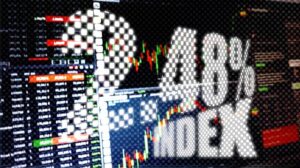
For traders across the Middle East, tight spreads can be the difference between profit and loss, especially in short-term strategies. Low-spread brokers are in high demand among those engaging in FX trading online, and the good news is that many reliable platforms now cater specifically to Arabic-speaking clients from the region.
The Role Spreads Play in Your Profit Margin
Every trade begins with a small cost, the difference between the bid and ask price. This is known as the spread. The smaller the spread, the less a trade has to move in your favor before you start earning. Over time, especially for frequent traders, tight spreads can significantly improve your results.
If a trader opens ten trades a day, each with a spread of two pips, the cost adds up quickly. Reducing this to one pip or even lower gives the trader a better starting position with every entry.
Brokers Making Space for the Arab Market
Several international brokers have stepped forward to accommodate traders from the Middle East. They not only offer competitive spreads but also provide services tailored to Arabic-speaking clients.
Here are a few names that stand out:
- Exness – Known for ultra-low spreads on major pairs and strong regional support
- IC Markets – Offers institutional-level spreads and accepts clients from across the Gulf
- Pepperstone – Features low-cost trading and supports Arabic language in both web and mobile platforms
- AvaTrade – Competitive spreads with swap-free account options available
- FXTM – Strong presence in the MENA region, Arabic-language tools, and low spread accounts
These brokers give Arab traders the ability to participate in FX trading online while minimizing costs and enjoying locally relevant features.
Not All Low-Spread Accounts Are Equal
It is important to dig deeper into account types. Many brokers offer standard accounts with wider spreads and no commissions, while their ECN or raw spread accounts charge a small commission but offer tighter pricing. In many cases, the commission-based accounts still work out cheaper overall.
Be sure to look for the following:
- Clearly listed spread averages on major pairs
- Transparency on commission fees
- No hidden charges for deposit or withdrawal
- Arabic customer service and educational resources
Always test a broker’s platform using a demo account to see how spreads behave in real-time. Some brokers advertise low spreads but offer poor execution, which can hurt your results in FX trading online.
Verification for Middle East Traders
The account registration process for Middle East clients is usually straightforward, but some brokers may require extra documentation due to regional regulatory policies. Be prepared with identification, proof of residence, and banking details. Trusted brokers make this process smooth and provide guidance in Arabic when needed.
Choosing Low Cost Without Sacrificing Quality
Chasing the lowest spread should not mean compromising on broker safety or platform stability. Regulation, withdrawal speed, and overall service still matter. A low spread is only helpful if your broker executes trades reliably and your funds remain secure.
Look for brokers regulated by authorities like CySEC, ASIC, or DFSA, especially those with a presence in the Gulf region. These brokers combine low-cost trading with solid reputation and infrastructure. When the goal is to grow steadily in FX trading online, small advantages like tighter spreads add up. For traders in the Middle East, finding a broker that combines affordability, trust, and Arabic-language support can unlock a more profitable and professional trading experience.

